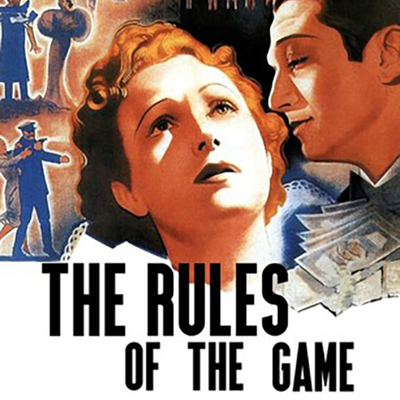Jean Renoir made his masterpiece, The Rules of the Game, between Chamberlain's appeasement of Hitler at Munich and the German invasion of Poland. It was a pregnant, ominous moment, and as such nearly everything that happened in that year takes on abiding significance, no matter the connection to what was happening in the world or the intentions of anyone involved.
Renoir had just finished La Marseillaise, a historical drama about the French Revolution, and wanted to do something completely different, to escape from current events, and settled on that most French of things: a comedy of manners set in a chateau loaded with cheating spouses upstairs and downstairs. He called his film "a dramatic fantasy" and started it with a quote from Beaumarchais' Marriage of Figaro about "Sensitive hearts, faithful hearts" that asked, "If Cupid was given wings / Was it not to flitter?"
That it reflected the moment's ominous tone was enhanced by its disastrous reception: the audience at the premiere jeered and threw things at the screen, and Renoir recalled watching a man calmly light his newspaper on fire and try to burn down the theatre. (An echo of the premiere of Stravinsky's Rites of Spring just over two decades' previous; one wonders what made Parisian audiences think a downvote on Rotten Tomatoes was so insufficient.)
The Rules of the Game would eventually be revived, once a decent print that hadn't been drastically cut by the panicked director was located. But before that the film was banned by the pre-Vichy French government for "having an undesirable influence on the young," whatever that was supposed to mean. Despite all this I have never been certain if Renoir set out to make a film that criticized French society avant le déluge, or whether that reputation was earned in hindsight.
But before it can settle into its country house setting, the film starts at Le Bourget airfield outside Paris where the aviator Jurieux (Roland Toutain) is about to land his plane after flying solo across the Atlantic – apparently still a feat a dozen years after Charles Lindbergh did the same thing. But instead of basking in his heroic moment, he throws a tantrum for a radio interviewer after his friend Octave (Renoir) tells him that the woman who inspired him to make the flight isn't there to meet him.
The next few scenes of the film set about plotting the romantic entanglements of its main characters. Octave is friends with both Jurieux and Christine (Nora Gregor), the woman he loves, as well as her husband Robert, the Marquis de la Chesnaye (Marcel Dalio). Christine is an Austrian, the daughter of a famous conductor who Octave had studied with as a young man, and Octave carries a torch for her as well despite being the middleman who introduced every member of this menage to each other.
Robert has been having an affair with Geneviève (Mila Parély) since before his marriage, but he is bored with her and listlessly trying to make an exit. Octave, a ne'er-do-well, sponger and perpetual houseguest, has also been intimate with Lisette (Paulette Dubost), Christine's maid, who is herself married to Schumacher (Gaston Modot), the gamekeeper at Robert's country estate, La Colinière. That little menage gets another spoke added with the below stairs flirtation between Lisette and Marceau (Julien Carette), a poacher who Robert takes to and hires as a house servant.
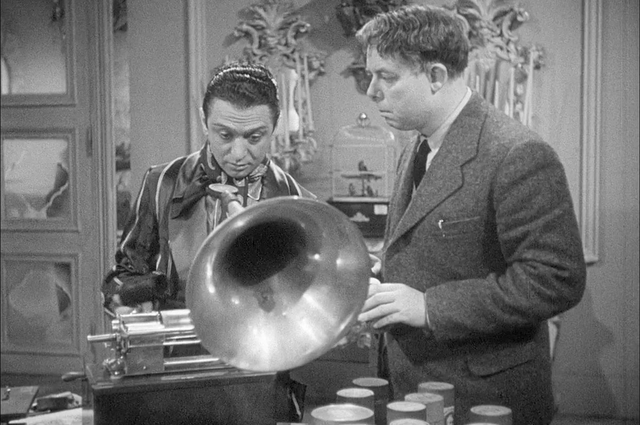
Renoir admitted that his film has no main character – it's a true ensemble piece, and our sympathies aren't supposed to rest on anyone long enough to take on their point of view, though Robert and Octave are the most substantially drawn and least objectionable members of his ensemble. The "heroic" Jurieux is often childish and petulant, Christine seems altogether too fond of being the object of so much adoration, and Geneviève is willing to sabotage everything and everyone if she's destined to be discarded.
The below stairs romances are more comic, as Lisette is more committed to service to Christine than her marriage and happy to be distracted by the charming and ardent Marceau. Schumacher, an Alsatian, is as close a Renoir's story gets to a villain; patrolling the estate to pull up the snares Marceau has set for rabbits, he casually shoots the pet cat of a neighbouring miller after finding it in a trap.
Filling in the cast of characters invited to La Colinière for a week of parties and shooting is Christine's niece Jackie (Anne Mayen) who is also smitten with Jurieux, the playboy St. Aubin, a rotund female pianist, a general and an industrialist whose busybody wife's obsession with diet irritates the chateau's chef. Add about a dozen other guests from either side of the divide between the bourgeoisie and the landed gentry along with their servants.
(Bonus points for anyone spotting legendary photographer Henri Cartier-Bresson, a friend of Renoir's, as one of the servants. So far I have never managed, despite several attempts.)
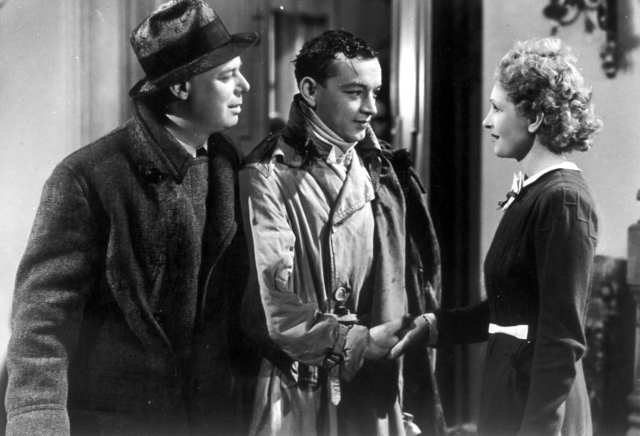
Octave, always the go-between, is tasked with getting Jurieux invited to La Colinière; Robert admits that inviting his wife's lover is "a big risk" but when he judges that her ability to navigate this romantic maze is sufficiently French, he decides to invite Geneviève as well. We all know it will end in tears but Octave is sure he's done his job well enough to caution Jurieux with a warning that Christine is "a society woman and society has strict rules."
The title of the film implies that not only those rules, but a larger set governing society in France's Third Republic – mere months away from its dissolution – are what Renoir's film is about.
Jean Renoir was the second son of the great impressionist painter Pierre-August Renoir, and grew up in the bohemian bourgeoisie, floating between France's various social classes. He moved from the cavalry to the infantry to the air force during the First World War and was given a lifelong limp thanks to a bullet wound in the trenches. He fell in love with films while recuperating in cinemas, sitting with his leg propped up on a seat, and after a false start as a ceramic artist (his father's suggestion) he decided he wanted to become a filmmaker, funding his early pictures by selling pictures off the wall of his family home.
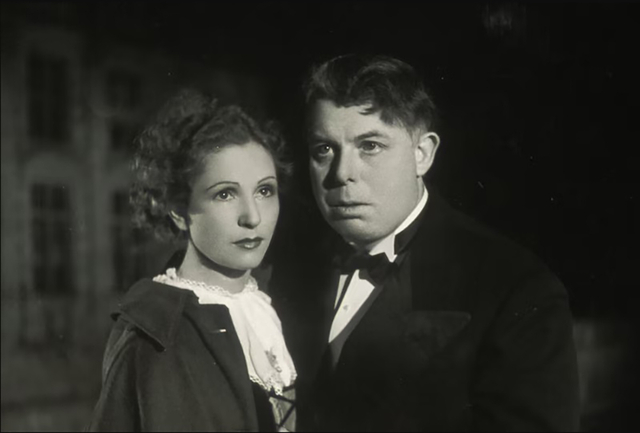
Renoir was considered a dilettante until he began making sound pictures, at which point his real talent for humour and characters was allowed to develop. By the time he made his third sound picture, Boudu Saved From Drowning (1932, remade as Down and Out in Beverly Hills by Paul Mazursky in 1986), he was clearly a talent worth watching, and in 1937 he made his first acclaimed masterpiece, The Grand Illusion, which was a hit in America as well as Europe, the first foreign film to be nominated for a best picture Oscar.
A story about class and prisoners of war starring Jean Gabin and Erich von Stroheim, it was once evergreen on best picture lists and paved the way for Renoir's move to Hollywood when war broke out in Europe. It was called the greatest antiwar film of all time, which sounds like an accomplishment until you remember that the Second World War broke out two years after it came out.
One day somebody is going to make a chart showing if antiwar pictures actually precede and even predict the seriousness of a conflict depending on their frequency, popularity and critical acclaim. My dear friend Kathy Shaidle was fond of saying that a film like The Great Dictator was as toothless as Woody Guthrie's fascist-killing guitar when it came to actually stopping wars:
"Hitler managed to look pretty stupid without much help, and when it mattered, neither The Great Dictator nor (the far superior) That Nazty Nuisance accomplished sweet eff-all. In fact, Chaplin's wrongheaded paean to commie pacifism during the former's finale retains its toxicity."
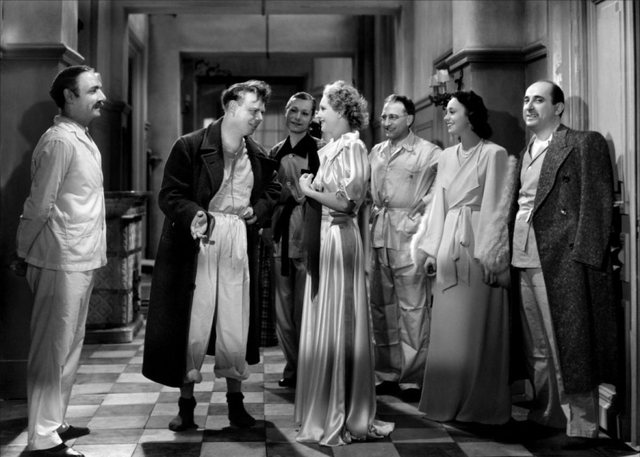
Writing about Renoir and his film in A Light in the Dark: A History of Movie Directors, film historian David Thomson notes how, except for Renoir and Dalio, the film is mostly "a gallery of faces" where "no one rises above the others or has a charisma that can subdue the needs of society or the group."
In this light Thomson details how The Rules of the Game is a disorienting departure from Hollywood studio product and the star system: it sets us amidst "an untidy gathering of people, a party, in which the servants and masters can easily change places, in which we are not trapped in a fantasy identification with a Cary Grant or a Garbo. Not that that impulse is unpleasant or unrewarding. But movie star films do assert a hierarchy of beauty or greatness or blessed aloneness. And Renoir says no to that."
Compared to the many films and TV shows set in the heyday of the English country house from the late Victorian period to just before the start of World War Two, there's a remarkable lack of formality or stuffiness on display at La Colinière. Guests don't stand on ceremony and servants aren't paralyzed by deference; it feels more like a week late in the season at a resort hotel, once grand but clearly at the beginning of its decline.
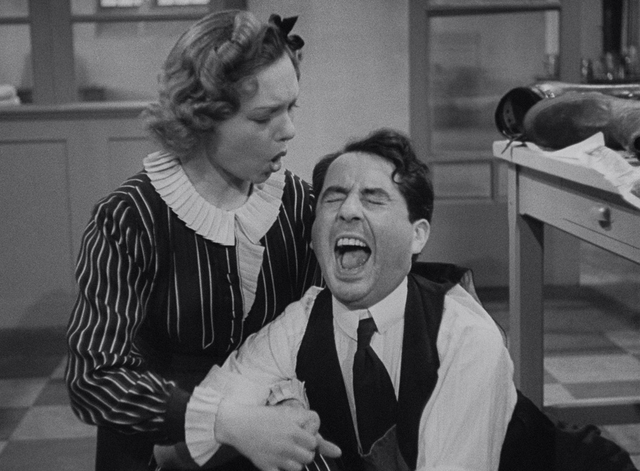
At the same time class barriers are maintained, just as zealously by the servants as the guests. Over dinner downstairs the cooks, maids and butlers gossip about the families they've worked for, their indiscretions and scandals, reserving their admiration for the ones who manage to maintain the old standards and put up a good front – the "class acts." And we get a heaping of old-fashioned French antisemitism as they note which ones are "yids" – like their host, from one of those old Jewish families that camouflaged themselves with a French name, title and manners.
It's one of two or three jarring moments when Renoir disturbs the comic veneer of his story – doubtless the cause of all that jeering and newspaper burning at the premiere of the film. Another is a hunt, held late in the week and just before the climactic evening that brings it all to a tragic end.
La Colinière is, like its neighbouring estates in Sologne, overrun with rabbits despite the best efforts of Schumacher and his gamekeepers. Robert wants neither the rabbits nor the fences to keep them out, so a hunt is organized to thin at least a few of their numbers. And thinned they are – make no mistake: animals were harmed in the making of this picture.
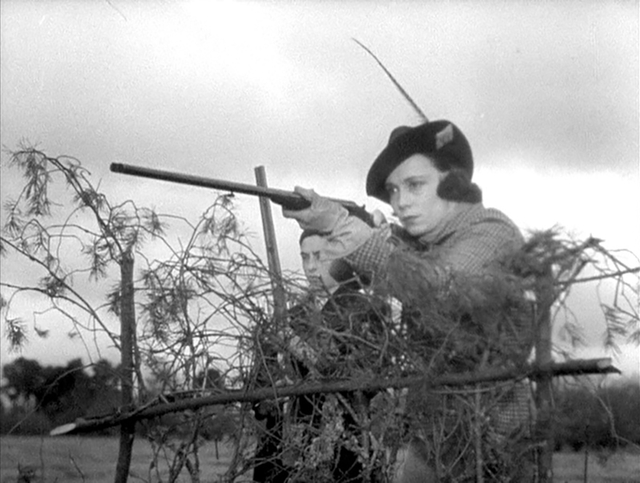
While the guests take their place at their blinds with varying degrees of boredom and sporting bloodlust, a line of beaters drives a handful of pheasants and a lot of rabbits through the leafless, late autumn woods to where they're slaughtered onscreen by Robert and his guests. (Octave conspicuously defers from taking a place in the firing line.)
The birds burst across the screen and get blasted to the ground in little clouds of feathers, but the real carnage is reserved for the rabbits. Renoir's camera follows them as they run for safety and a few make it to the far side of the field, but most of them are stopped in their tracks by the guests' shotguns. They tumble and roll to a stop, or we watch as they're halted mid-sprint, stretching their legs in a final slow leap before constricting in a pitiful rictus.
It's a shocking scene no matter your position on hunting or meat-eating, though its purpose isn't apparent until near the end of the picture, when one of the characters is gunned down, murdered in a case of mistaken identity while running in the dark, tumbling to the ground like one of the luckless rabbits.
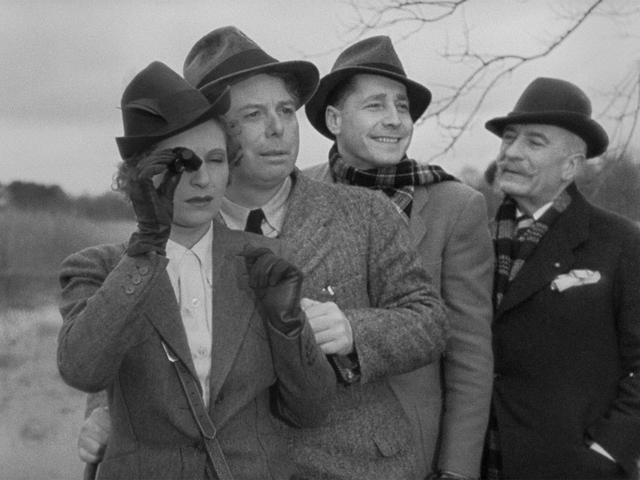
But before we get there we need to watch as all those menages collide and collapse at the fěte held in Jurieux' honour, where guests in costume sneak off in pairs, glimpsed through halls and doorways, followed by angry lovers and husbands, as the farce of infidelities moves downstairs. Guests caper on stage in ghost costumes and Schumacher chases Marceau through the chateau firing his gun as Octave struggles to extricate himself from his bear costume.
Men in evening dress punch and slap each other up and down stairs and across elegant rooms while women scream and faint. Schumacher and Marceau are dismissed from their posts, but Robert and Jurieux come to a gentleman's agreement moments after they were at each other's throats.
Octave confesses to Christine that he's a failure as they escape from the chaos and gunplay at the party. Christine reveals herself as an agent of chaos, dallying with St. Aubin before confessing her love to Robert, then Jurieux and finally the pitiful, vulnerable Octave. Banished from the chateau, Marceau and Schumacher become allies in their misfortune, the little poacher hyping up the gamekeeper to take revenge, singling out Octave when the men mistake Christine for her maid while she's wearing the "unflattering" cape Lisette's husband had given her.
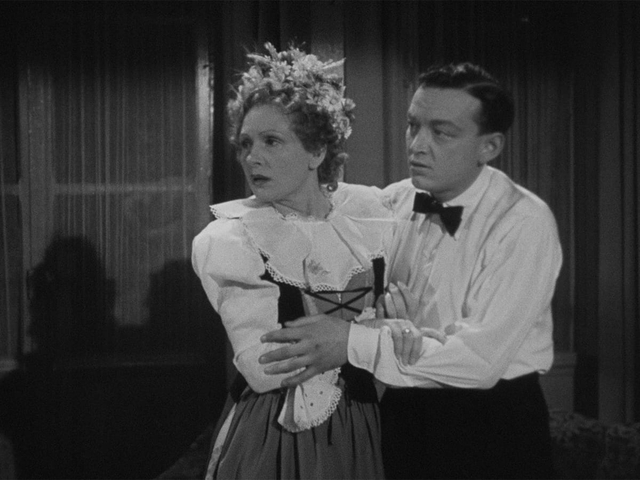
My friend Kathy wrote here that she loved Grand Illusion but admitted that she "didn't get" The Rules of the Game, which "seems to require considerable knowledge of the French 'door-slamming farce' tradition; the intricate upstairs/downstairs social strata being skewed; and the precise state of the world when it was being filmed, in order to be properly appreciated."
Renoir couldn't control how his movie would be received, or how it would come to be revered after narrowly escaping oblivion. But there's no doubt that he wanted us to feel the impact of that final shooting at the end of his picture, when Shumacher's gun finds its target in the dark after missing it minutes earlier in brightly lit rooms full of people.
I have no doubt that Renoir was saying something about France and the classes that ran it; he may have even had an intimation that they were poorly prepared to defend it from invasion, defeat and subjugation just two years after his film's disastrous premiere. But I also doubt that many people could have predicted the speed and scale of that defeat.
France had survived the humiliation of the Franco-Prussian War and paid enormously for victory in 1918; it would have taken a finely-honed pessimism to predict the humiliation of occupation and Vichy collaboration, and though Renoir was many things he was not a pessimist.
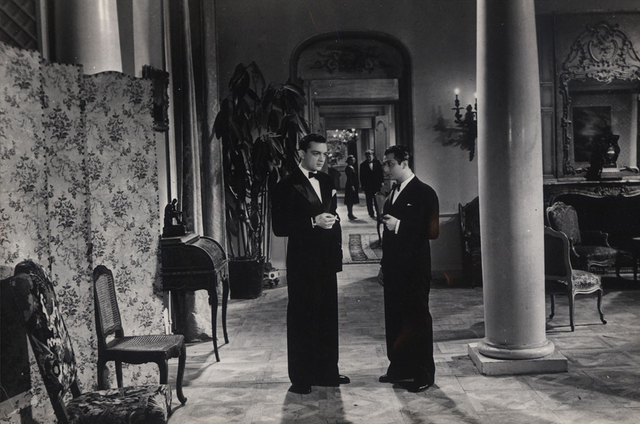
But if you want to play a game where Renoir's film is prescient, it's worth imagining just what would happen to its characters two or three years after "FIN" appears on the screen. Jurieux the hero would have fought a doomed battle against the Luftwaffe and with any luck survived to fly for the Free French across the channel, but since he doesn't survive to the end of the movie we have something of a definitive statement about how France treats heroes.
As a Jew, Robert would not have found neither occupied or Vichy France hospitable; as an Austrian Christine would have been forced to make a difficult choice – or perhaps it might not have been so difficult. Geneviève would be irresistible to a German staff officer with a family and connections, and status would have saved her from becoming one of those women who got their heads shaved after liberation.
Marceau might have made himself useful to the resistance, or he could have become a player on the black market selling poached game. Schumacher the Alsatian might have been among the French police assisting the deportations to the internment camp at Drancy, or he might have joined the Charlemagne brigades of the Waffen SS. A woman like Lisette has all the traits of a survivor.
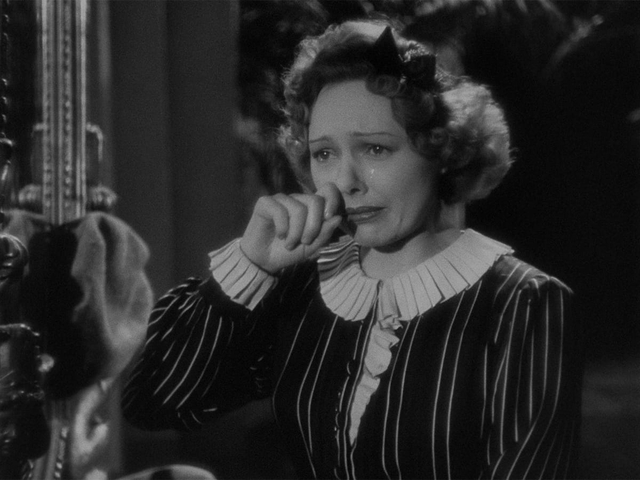
But it's hard to imagine anything positive for poor, luckless Octave, and as for Renoir he joined the exodus of European talent to Hollywood, joining Fritz Lang, Max Ophuls, Otto Preminger and Douglas Sirk. His Hollywood pictures are generally disappointing; David Thomson considers Diary of a Chambermaid, a 1946 drama starring Paulette Goddard and Burgess Meredith, to be the best, but wrote that studio boss Darryl Zanuck once said that, despite his desperate love for Hollywood and efforts to make it there, Renoir "was not one of us."
Bogart fans will look at Dalio and find themselves playing a game of "I know that face." Dalio, a Jew, escaped France just ahead of the Germans and would play the croupier Emil in Casablanca and "Frenchy" in To Have and Have Not. Paulette Dubost, who played Lisette, had a career that spanned over seven decades, working with Preston Sturges, Ophuls and Francois Truffaut before making her last film in 2005.
Renoir became a naturalized U.S. citizen around the time he made his last Hollywood picture. He made a comeback with The River (1951), a romance shot in India, where he met and inspired a young cinema student named Satyajit Ray. He returned to France to make movies like French Cancan (1954), Elena and Her Men (1956) and The Elusive Corporal (1962), a bookend of sorts to The Grand Illusion. Ill health forced a return to Hollywood, and he died in Beverly Hills in 1979, nine years after making his final film.
Club members can let Rick know what they think by logging in and sharing in the comments below, as access to the comments section is one of many benefits that comes along with membership in the Mark Steyn Club.


